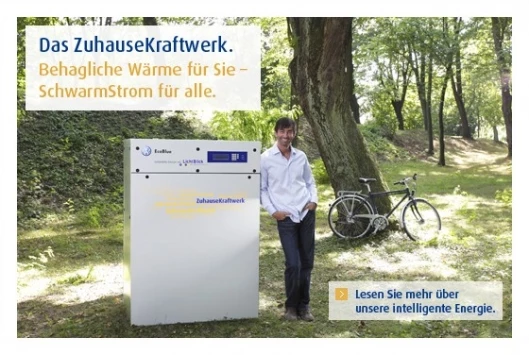Volkswagen has recently announced a rather ambitious project that, for a change, has nothing to do with cars. Teaming up with regenerative-power company Lichtblick, it aims to install 100,000 co-generation power units in Germany as part of a concept called ‘SchwarmStrom’ which, literally translated, means ‘swarm power’. Successful application would allow Germany to abandon the use of nuclear and coal power stations and provide adequate backup to renewable energy sources, reducing carbon dioxide emissions by up to 60%.
The plan is to install miniature gas-fired power plants based on internal combustion engines in homes, which would collectively produce electricity equivalent to two nuclear reactors over the course of year. Providing heating, hot-water and electricity would be the generator’s main job, and excess power would be relayed back into the local grid for use elsewhere.
Lichtblick underlines its green credentials by citing the use of biogas rather than natural gas, and benefits to the consumer come in the form of greatly reduced consumption due to the high efficiency of the new system. It does have a few hurdles to jump before this vision can become reality, however, since households would allegedly have to pay around USD$7,250 each in order to have a generator installed.
A statement released by VW and Lichtblick reads “SchwarmStrom is revolutionizing power production in Germany. It clears the way for more renewable energy and an exit from power from nuclear and coal. The home power plants together form a huge, invisible power station that doesn’t make the countryside ugly or require additional infrastructure.”
The success of the project is largely based on hitting the targets set to make the savings feasible, and many more questions are likely to be posed to involved parties at the Frankfurt motor show.






